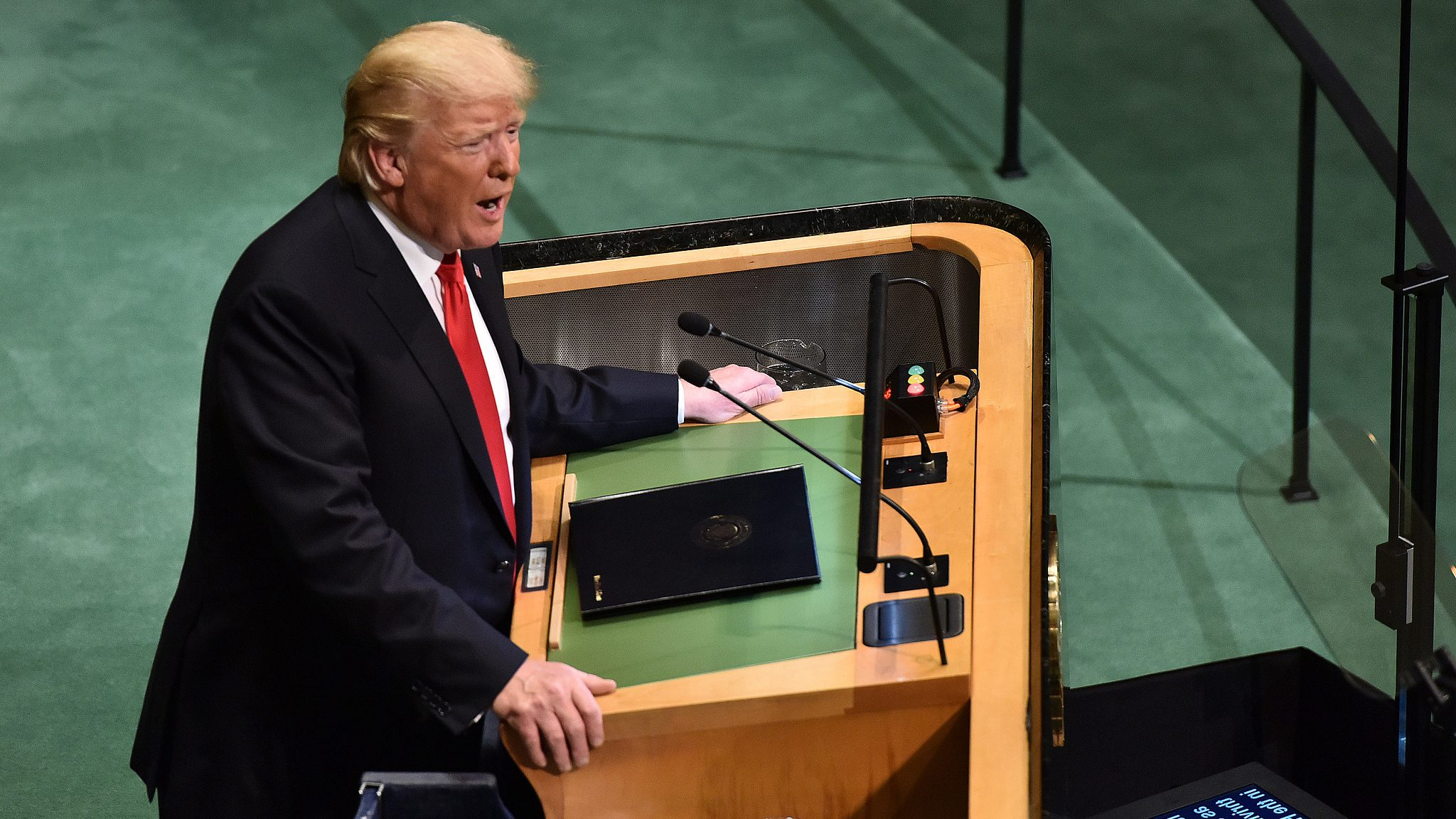Editor's note: Martin Jay is an award-winning journalist based in Beirut, his career as a foreign correspondent includes working for several major international media. The article reflects the author's opinion, and not necessarily the views of CGTN.
Being laughed at by world leaders of the United Nations General Assembly (UNGA) was the least of Donald Trump's problems this week. In the Middle East he just lost two key battles with Iran.
It's been Donald Trump's toughest week in office. It wasn't that the UN assembly which gathered world leaders, collectively laughed when he hailed himself as a great leader, which must have been humiliating as it was a first ever of its kind in the chamber. The real humiliation was not in New York, but in the Middle East.
Barely a matter of days apart, Iran scored a double whammy against Trump although you could be forgiven for not noticing, given that these body blows were not well reported in the Western press.
The week kicks off with Russia announcing a whole new ball game in Syria, with Assad now being supplied with the sophisticated anti-aircraft missile system (s-300) along with an arsenal of new equipment which will make it much harder for Israeli and western jets to fly sorties across Syria and bomb Hezbollah, Iranian or Assad regime targets.
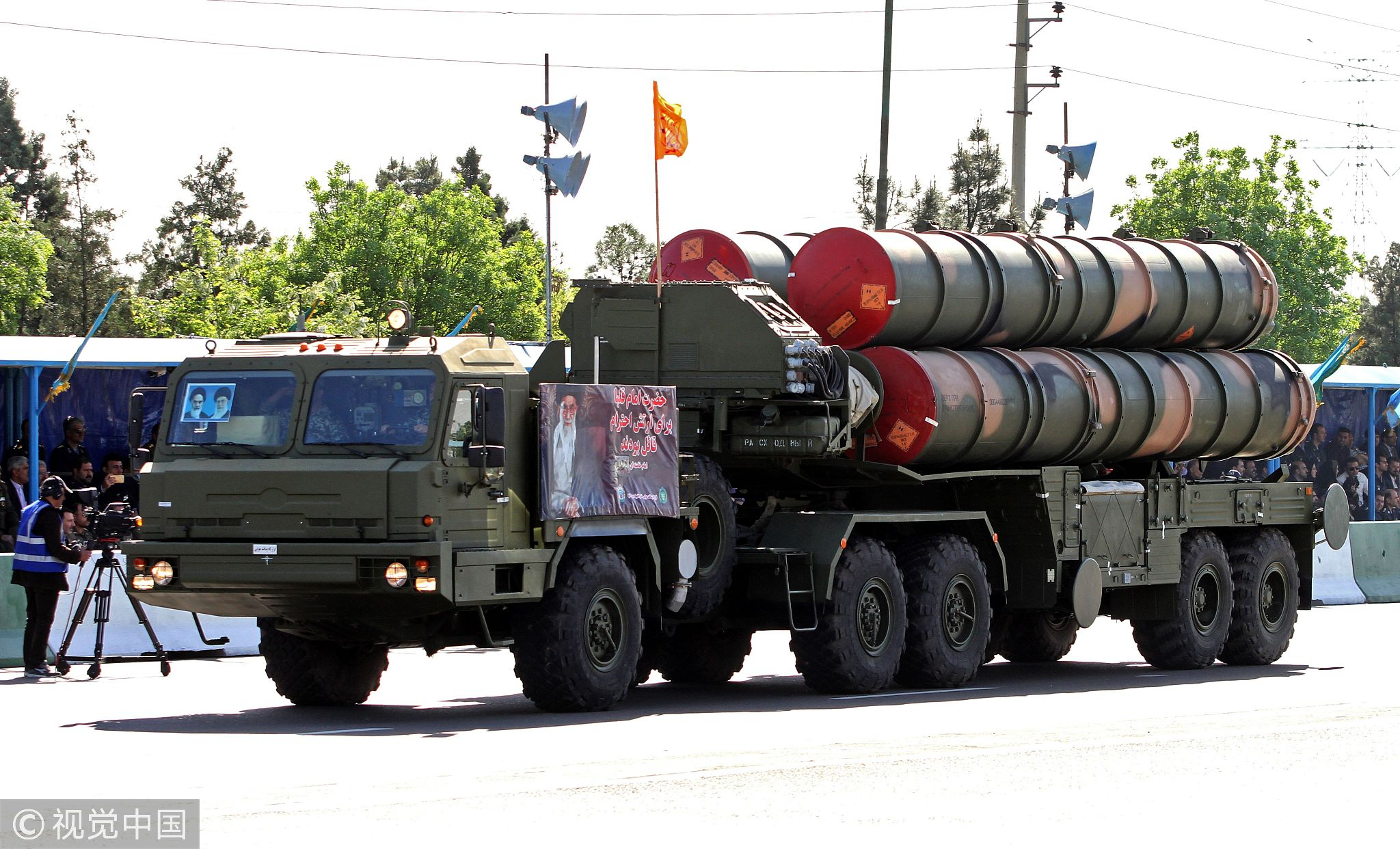
An Iranian military truck carries parts of the S-300 air defense missile system during a parade on the occasion of the country's Army Day in Tehran on April 18, 2017./ VCG Photo
An Iranian military truck carries parts of the S-300 air defense missile system during a parade on the occasion of the country's Army Day in Tehran on April 18, 2017./ VCG Photo
Israel, America's strongest and most devoted ally to the US, made a huge blunder when its jets allowed for a Russian surveillance plane to be used as cover, leading to the tragic loss of 15 Russian servicemen's lives.
The Israelis will no doubt be angry with themselves for allowing the dream deal that Russia gave them in Syria – to be allowed to freely target what they consider to be a threat to Israel without any real resistance – to be shot down in flames.
Now, all bets are off and Israel's pilots will have a lot more to deal with when carrying out missions. But Israel's real bitter pill to swallow is not that it has upset its friend, Russia, but that the Russian jet incident has probably given a huge boost to Iran in Syria, both within Syria and in the region.
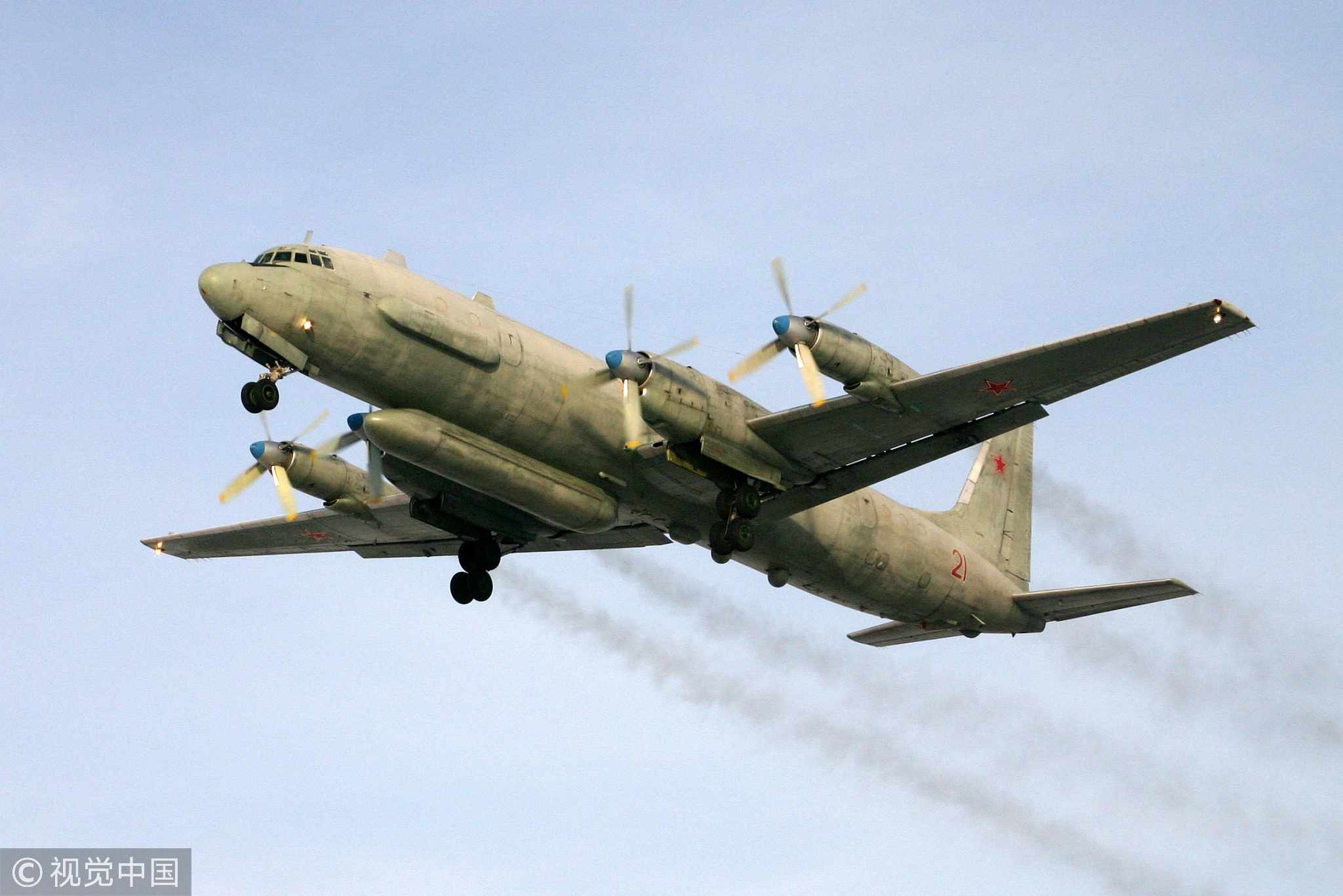
An Ilyushin Il-20 electronic-warfare aircraft flies over an airfield in Russia's Central Military District./ VCG Photo
An Ilyushin Il-20 electronic-warfare aircraft flies over an airfield in Russia's Central Military District./ VCG Photo
In July, Netanyahu visited Putin in Moscow and was assured that Iranian military positions, which were very close to the Israeli border, would be pulled back. Reports varied in the actual distance. Some reported 25 kilometers, others said it was much more. But Israel must be concerned now that Putin, disappointed and angry with Israel, may well not enforce this rule so fortuitously with his Iranian allies.
Putin may well even allow Iran's military or even Hezbollah's weapons factories to take full advantage of the cover of new no-fly zones, or at the very least position them close to the S-300s.
There can be no question that Iran, battered by US sanctions initiated by Trump, finally scored a goal against the US leader and will no doubt exert itself in the theater of war in Syria. Hezbollah too, equally hated by Trump's administration, will take full advantage of the new arrangement in Syria of Putin's.
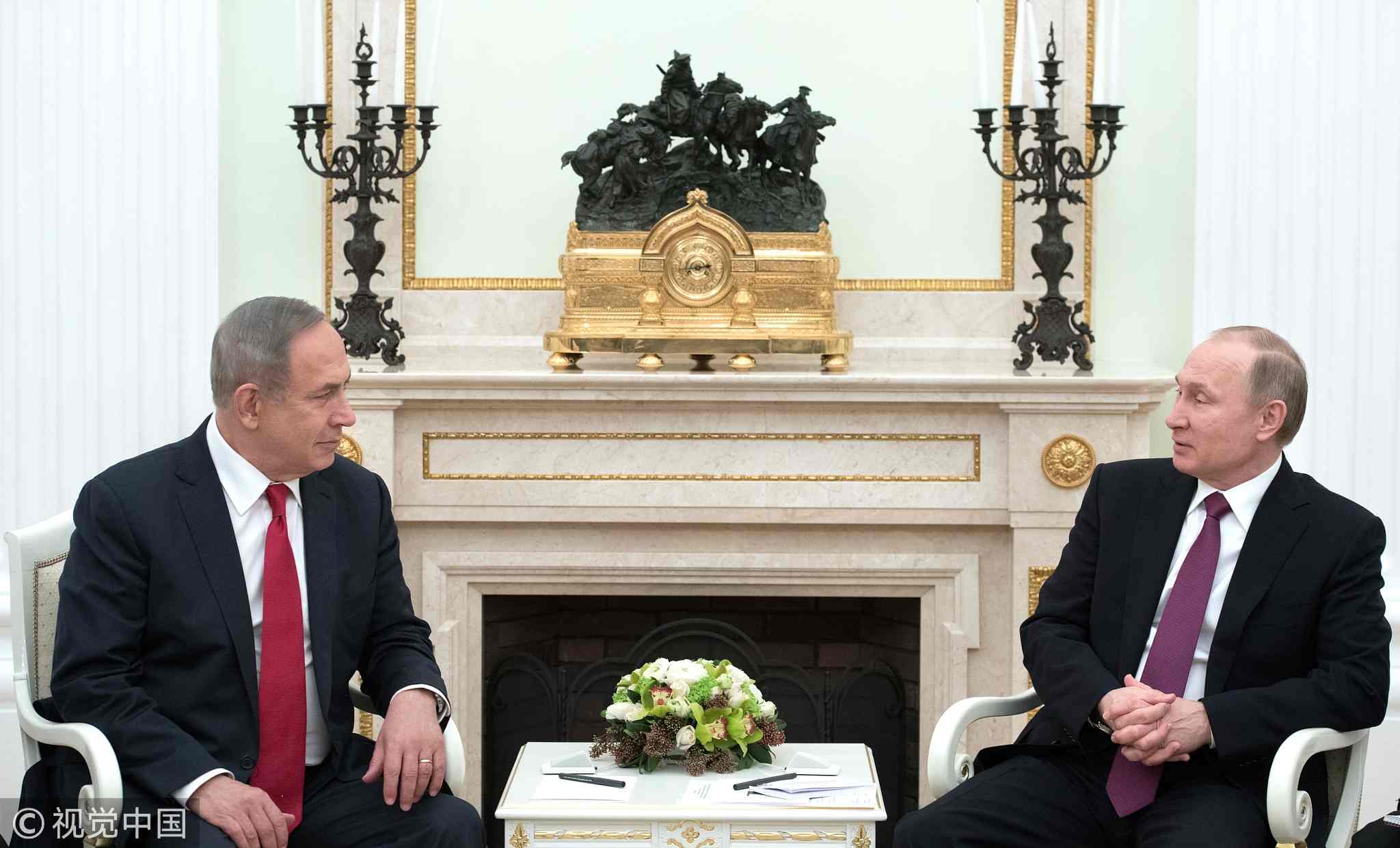
Russian President Vladimir Putin (R) and the Prime Minister of Israel Binyamin Netanyahu at a meeting./ VCG Photo
Russian President Vladimir Putin (R) and the Prime Minister of Israel Binyamin Netanyahu at a meeting./ VCG Photo
But there was more humiliation for Trump just a couple of days after Putin's announcement – which has already drawn veiled threats from the US leader, as the S-300 issue is a game changer for the West in Syria.
Battered and bruised by the Putin ruse, Trump barely had time to lick his wounds before the European Union plunged its sword into him with its announcement of a plan to allow European companies and governments to trade with Iran – including buy its oil – with no fear whatsoever of sanctions from US banks.
The key to Trump enforcing ‘secondary sanctions' against Iran is that any firm dealing in US dollars in Iran will ultimately have to go through the US banking system. The EU has come up with a ‘clearing house' for all EU firms who want to buy oil from Iran, which, in euros, will effectively be invisible to the US administration and US banks.
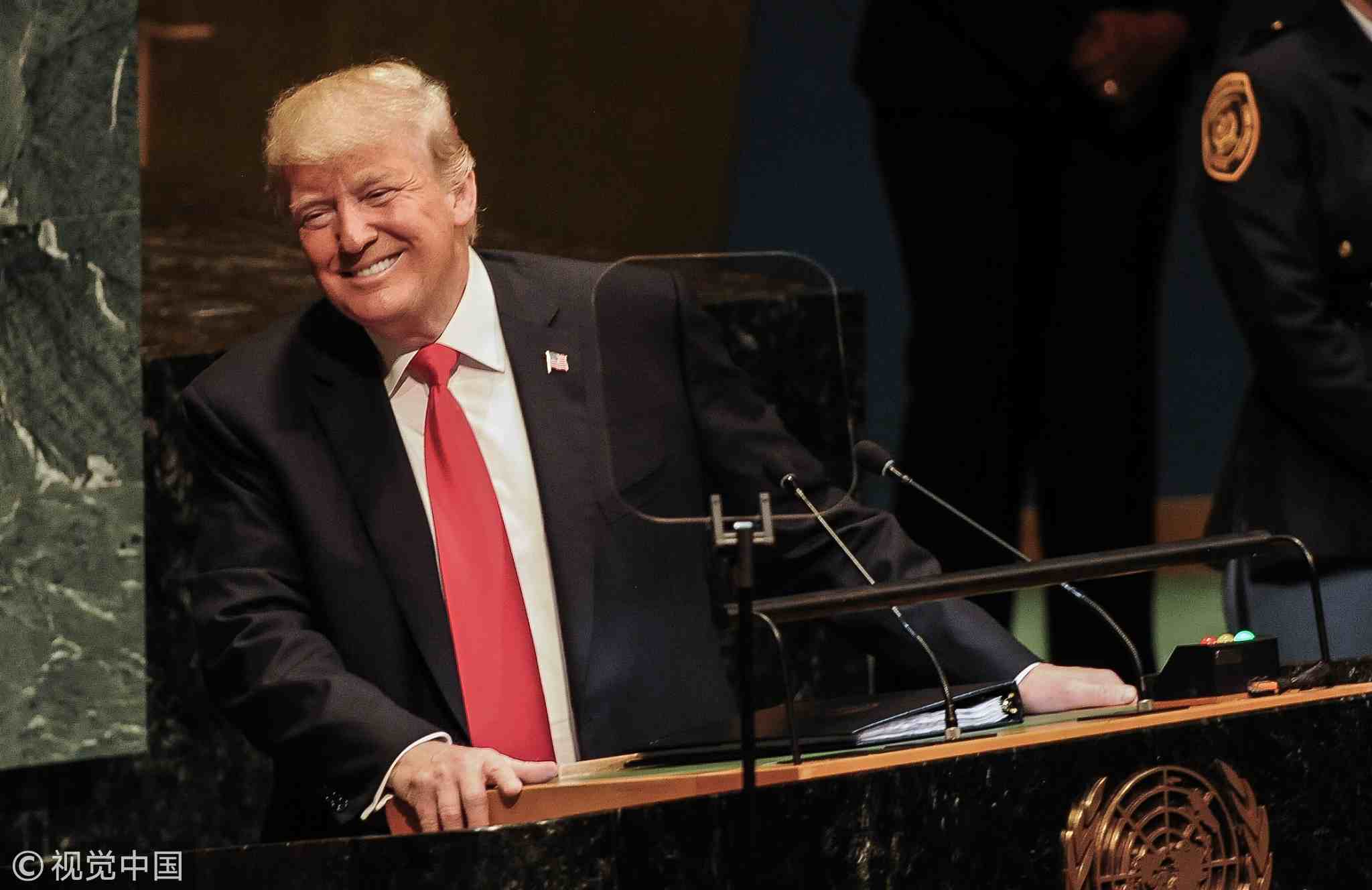
The US president, Donald Trump, is delivering his second speech to the UN General Assembly./ VCG Photo
The US president, Donald Trump, is delivering his second speech to the UN General Assembly./ VCG Photo
It's an idea which has been bandied about for months and which initially was not considered a serious option when announced initially by the EU's impotent foreign policy chief, which many EU governments consider more of a spokeswoman of the European Union's ambitions to be a geopolitical player, rather than actually enforce the real policy.
But the new plan changes all of that and makes Brussels a superpower of sorts if it can actually get the Iran deal up and running. The blow to Trump's secondary sanctions cannot be underestimated.
Russia and China were never going to go ahead with the oil sanctions against Iran, but India – which many hoped would reject the secondary sanctions and continue buying Iranian oil – recently buckled.
The impact on Iran's local currency has been devastating but a new mechanism by the EU would at the very least preserve 40 percent of all of Iran's oil export to the EU market and perhaps also be used by countries like India who have to trade with Iran – due to their export markets in foods - and would welcome a ‘grey market' solution.
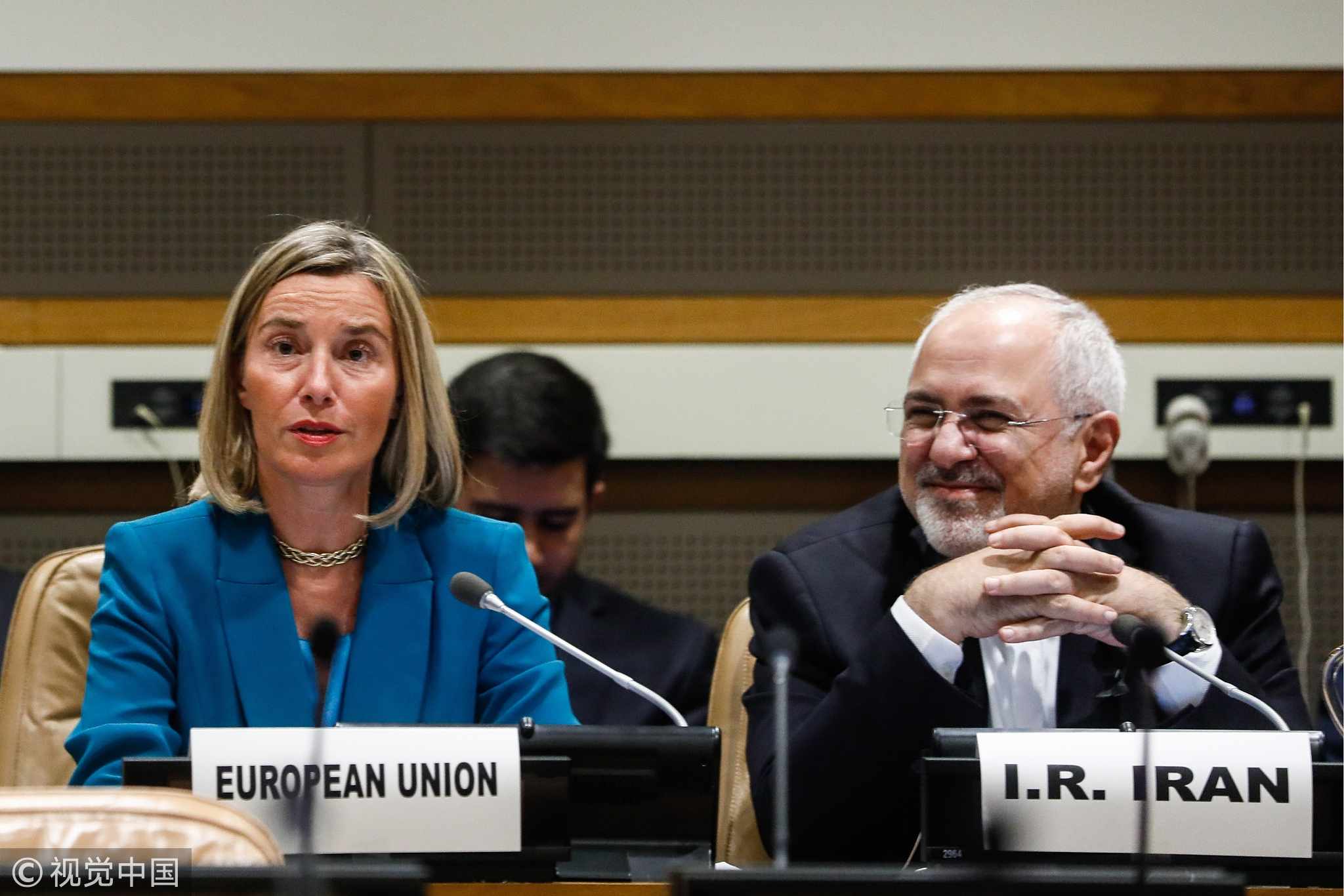
Federica Mogherini (L), European Union's High Representative for Foreign Affairs and Security Policy, and Iran's Foreign Minister Mohammad Javad Zarif attend a ministerial meeting./ VCG Photo
Federica Mogherini (L), European Union's High Representative for Foreign Affairs and Security Policy, and Iran's Foreign Minister Mohammad Javad Zarif attend a ministerial meeting./ VCG Photo
Trump may well have erroneously believed that after his Europe trip – where EU leaders and NATO humored him into believing that he had achieved much in Brussels – that the EU would go along with his secondary sanctions.
But he has underestimated how important the Iran deal is to the EU, which many top officials in Brussels believe is the first ever heavyweight ‘foreign policy' peace deal ever drafted. European Union chiefs, ahead of 2019 elections are too afraid that the credibility of the EU project would be threatened if they didn't preserve the sanctity of the so-called Iran Deal.
Iran, ironically, has proved to be a rod for the EU to wield against Trump as Brussels builds on stronger relations with partners which it previously was cautious to court – like Russia – to preserve its sanctity and global image.
(If you want to contribute and have specific expertise, please contact us at opinions@cgtn.com.)

